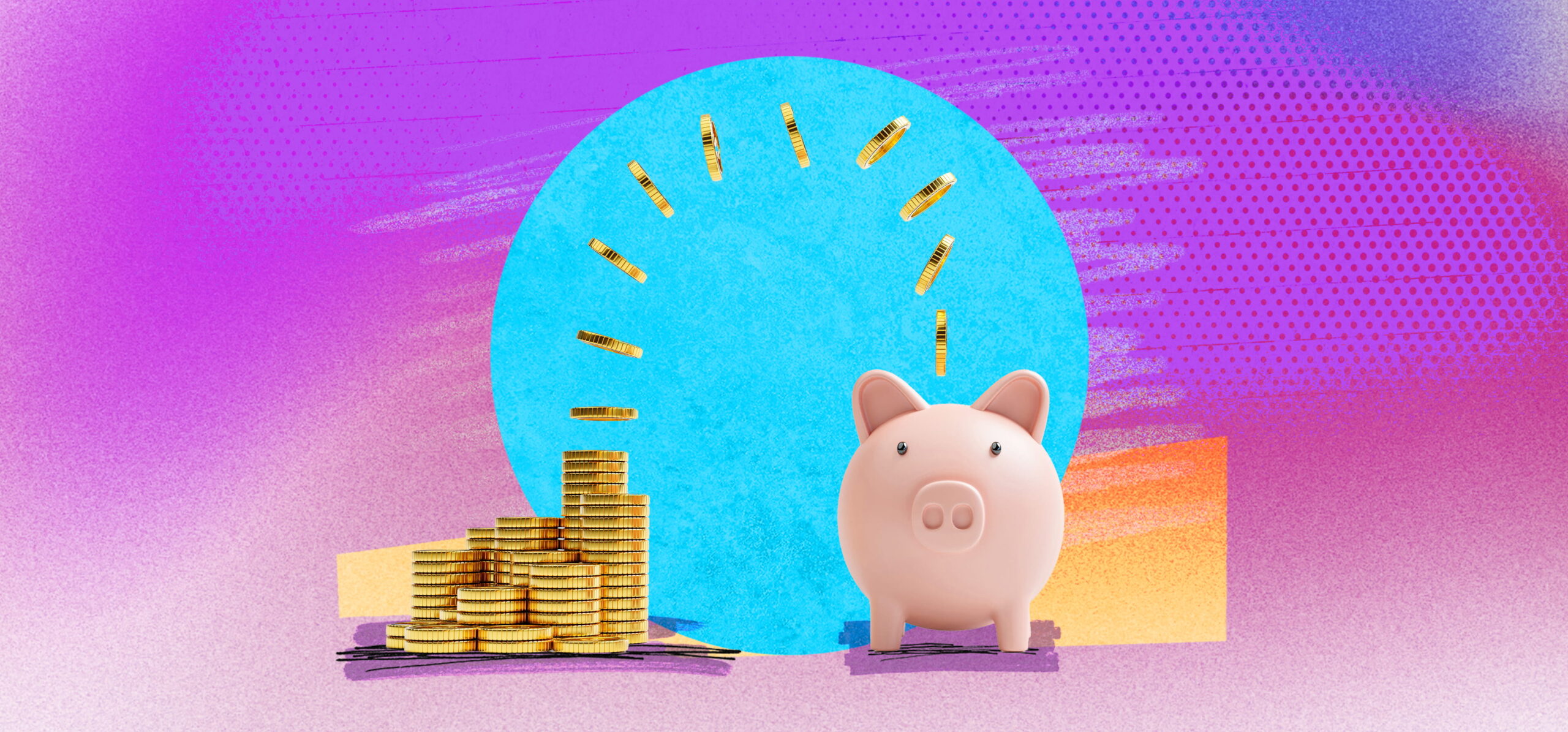In this article
- Why teamwork and employee recognition matter more than ever
- Employee recognition that works: low cost, high impact
- 12 ways rewards and recognition improve teamwork and performance
- Using measurement and goals to support, not stress, your team
- How to design a rewards and recognition programme that works
- How Moneypenny builds belonging through rewards and recognition
- Turning recognition into a competitive advantage
Why teamwork and employee recognition matter more than ever
Teamwork has always been central to business success, but the way teams work has changed. Hybrid working, flexible hours, cross functional projects and AI supported workflows mean employees are more interconnected than ever. At the same time, many people feel under pressure, time poor and disconnected.
Employee recognition helps to counter those pressures. Done well, it:
- shows people that their contribution is seen and valued
- reinforces the behaviours and values you want more of
- builds trust and belonging inside teams, not just with managers
- improves engagement, productivity and retention across the board
Recent research carried out by Gallup has found that recognition is one of the most frequently missed opportunities in modern workplaces. Yet it is also one of the easiest things to improve. That is what makes it such a powerful lever for HR leaders and managers who want to strengthen teamwork.
Employee recognition that works: low cost, high impact
Effective recognition doesn’t have to be expensive. The most meaningful thankyous are often simple, specific and personal. A handwritten note, a thoughtful email or a one to one conversation can have as much impact as a bonus, when it is honest and tailored to the individual.
Gallup’s study highlights three important truths about recognition:
- It is not one size fits all. People value different types of recognition, from public shoutouts to low key private thanks.
- Who recognises someone matters. Many employees say their most memorable recognition came from a manager or senior leader who took time to notice their work.
- Frequency is critical. The most engaged employees receive recognition regularly, often weekly, not just once or twice a year.
Common forms of high impact recognition include:
- public acknowledgment, such as awards, certificates or team shoutouts
- private thanks from a manager, leader, peer or customer
- promotion, added responsibility or visible trust
- monetary rewards, trips, vouchers or extra leave
- learning opportunities, new projects or mentoring
All of these can be adapted to fit your culture, budget and team needs. The key is to make recognition genuine, specific and linked to what success looks like in your organisation.
12 ways rewards and recognition improve teamwork and performance
Recognition fuels motivation. When people feel seen and appreciated, they support each other more, share knowledge more freely and bring more energy to their work. Here are 12 ways rewards and recognition strengthen teamwork.
1. Boosting team productivity through positive reinforcement
Recognition reinforces the behaviours you want to see more of, such as collaboration, problem solving and helping colleagues. When people know that good teamwork will be noticed, they are more likely to step up for each other and take ownership.
2. Improving morale and reducing unhealthy conflict
Appreciation reduces friction. When team members feel valued, there is less space for resentment, blame and backstabbing. Recognition helps create a positive environment where people give each other the benefit of the doubt and focus on solutions, not politics.
3. Increasing employee retention in key teams
Employees who feel ignored are much more likely to leave. Those who feel recognised and supported are far more likely to stay, even when other opportunities arise. Team-based rewards and recognition remind people that they are part of something worth staying for.
4. Encouraging open communication and feedback
Recognition moments create natural opportunities for conversation. Team thankyous, shoutouts and awards open space for people to talk about what is working, share lessons and ask for help. This breaks down barriers and improves psychological safety.
5. Boosting team happiness and wellbeing
Feeling appreciated is good for mental health. Recognition can reduce stress, increase resilience and help people feel more positive about their work. Happier teams collaborate more, support each other more and are better equipped to handle busy periods.
6. Making recruitment easier through word-of-mouth advocacy
Teams that feel appreciated tend to talk positively about their employer, both online and offline. This word-of-mouth advocacy feeds directly into your employer brand. When potential candidates see authentic stories of recognition and belonging, they are more likely to see themselves in your organisation.
7. Strengthening company culture and values through visible recognition
When recognition is linked to company values, it brings culture to life. For example, praising teams for supporting customers, collaborating across departments or living your sustainability goals shows what those values look like in practice, not just on posters.
8. Increasing job satisfaction and pride in team achievements
Celebrating milestones, projects and everyday wins builds pride. Teams are more satisfied when they can see the impact of their work and feel that impact is acknowledged. This pride makes it easier to ask for extra effort when needed.
9. Improving your employer brand through consistent recognition stories
Sharing stories of recognition, whether through internal newsletters, social media or careers pages, strengthens your reputation. It shows that your culture is not just about targets and KPIs, but also about people and relationships.
10. Driving development and career progression for team members
Recognition can point people toward development. Highlighting strengths in public helps colleagues and leaders see where someone can grow. Pairing praise with learning opportunities, mentoring or new responsibilities turns recognition into a springboard for career progression.
11. Building loyalty and long-term commitment to the team
Recognition builds emotional connection. When team members feel seen by managers, leaders and peers, they are more likely to commit their energy and ideas for the long term. Loyal teams are more stable, resilient and productive.
12. Creating shared vision and collective accountability for results
Rewarding whole teams, not just individuals, encourages people to think about shared goals. Group recognition such as team experiences, bonuses or celebration events emphasises the importance of working together and supporting each other to deliver results.
Using measurement and goals to support, not stress, your team
Recognition doesn’t exist in isolation. It works best alongside clear expectations and fair measurement. Metrics and targets can easily become a source of stress if they feel arbitrary or out of people’s control. Used well, they become a positive framework for coaching, recognition and growth.
Performance development research highlights three important principles:
- Measure what matters and what people can influence. If employees cannot see how their actions affect a metric, they will not see it as fair.
- Use metrics for coaching, not blame. Conversations should focus on how to improve and what support is needed, not just what went wrong.
- Discuss goals regularly. Performance should be a frequent, future focused dialogue, not just an annual review.
When managers combine clear goals, fair measurement and frequent recognition, employees are more likely to feel motivated, not judged. They understand what is expected, see how their work contributes and feel that their efforts will be noticed.
How to design a rewards and recognition programme that works
A strong rewards and recognition programme doesn’t need to be complex. The most effective programmes are simple, consistent and aligned to your culture and values.
- Make recognition specific. Explain exactly what someone did and why it mattered.
- Keep it timely. Recognise people close to the moment of achievement so the link is clear.
- Use different voices. Encourage recognition from managers, peers, senior leaders and even customers.
- Tailor rewards to individuals. Ask people how they like to be recognised and vary the approach.
- Connect recognition to values and goals. Highlight how behaviours support your mission and culture.
- Balance team and individual rewards. Celebrate team success to avoid unhelpful competition, while still calling out individual contributions.
- Combine recognition with development. Use praise as a starting point to discuss growth, strengths and future opportunities.
Nothing drains morale faster than constant interruptions, missed calls or repetitive admin. Flexible receptionist support or AI receptionist services can free your teams to focus on meaningful work, collaboration and recognition.
How Moneypenny builds belonging through rewards and recognition
At Moneypenny, recognition is not just a line in a policy. It is woven into everyday life, benefits and culture. The goal is simple: create a workplace where people feel they belong and where their contributions are seen, celebrated and supported.
Examples of how this shows up include:
- Wellbeing focused benefits: dedicated wellbeing rooms, subsidised fitness sessions, group activities and an activity cupboard filled with kayaks, lawn games and beach trolleys that colleagues can use for free.
- Support that extends beyond the office: free access to an Employee Assistance Programme and a 24/7 GP service for employees and their families, plus Wellbeing Champions in the UK office.
- People powered clubs and communities: Minipennies for new parents, Menopennies for menopause support, Ecopennies for ESG champions and Raising Pennies for employee led fundraising.
- Learning and development as recognition: support for future qualifications, mentoring at every level, on the job coaching and apprenticeships in partnership with local colleges.
- Celebrating milestones and everyday wins: legendary parties, film nights, book groups, football clubs and milestone recognition for long service, with many people celebrating more than ten years at Moneypenny.
All of these elements work together to create belonging. They show people that they are more than a number on a report. They are part of a community that values their wellbeing, growth and contribution.
Turning recognition into a competitive advantage
Recognition is one of the simplest and most powerful tools leaders have, yet it is still underused. When employees rarely hear that their work is appreciated, they disengage and look elsewhere. When they receive frequent, honest and personal recognition, they bring more energy, ideas and loyalty to the team.
By combining clear expectations, fair measurement and a thoughtful approach to rewards and recognition, organisations can build strong, connected teams that perform at their best. Moneypenny’s experience shows that when you invest in belonging, wellbeing, learning and celebration, people do not just stay. They thrive, and they help customers thrive too.
In a tight labour market, that is a powerful advantage. Recognition costs little, but its impact on teamwork and performance can be huge. The more intentionally you recognise your people, the stronger your culture and results will be.




